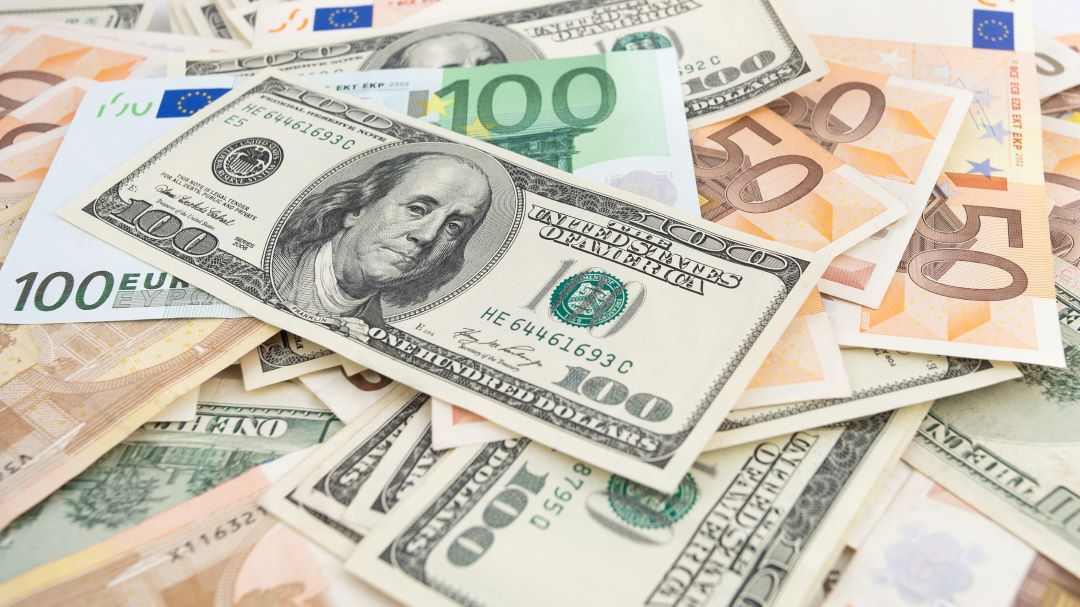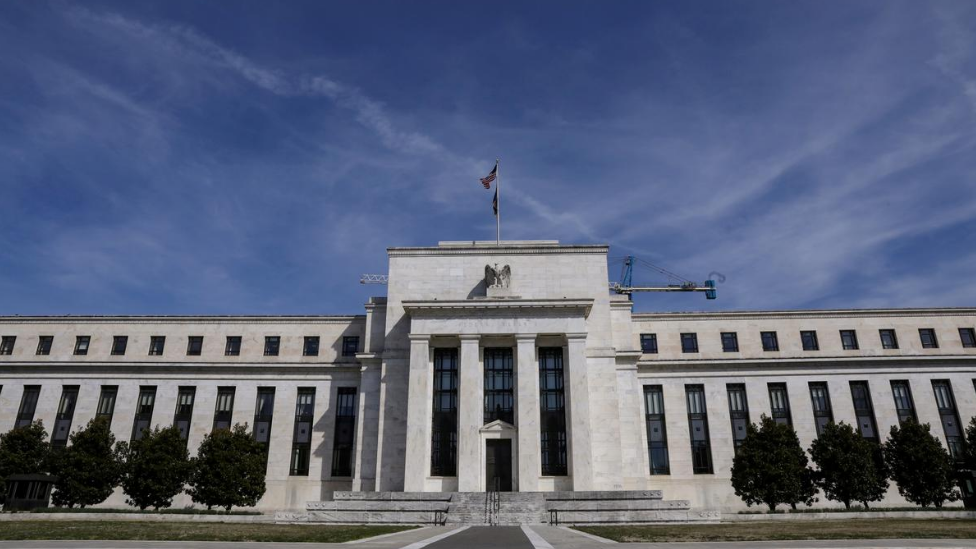
Editor's note: Xin Ping is a commentator on international affairs who writes regularly for CGTN, Xinhua, and Global Times. The article reflects the author's opinions and not necessarily the views of CGTN.
To get a handle on the worst inflation in 40 years, Federal Reserve Governor Christopher Waller said on May 30 that the Fed should be prepared to raise interest rates by a half percentage point at every meeting from now until inflation is decisively under control.
It is the first time that the Fed has raised its rate by half a percentage point in 22 years. The world is watching, and deeply worried, because it brings back past memories when the Fed's contractionary policies enabled the U.S. to use its dollar hegemony to "loot" wealth from around the world.
With the dollar long been the world's main reserve currency, the U.S. has had an "instinct" to raise massive debt and print money to weather major economic crises. But this low-cost way to stimulate the U.S. economy is essentially about forcibly borrowing from other countries. So when excess liquidity drives up global inflation, the Fed would raise interest rates and tighten monetary policy, which would then widen its interest rate gap with other countries, consequently attracting international capital to the United States.
Under such circumstances, other countries and regions, especially developing countries and emerging markets with a relatively fragile economy, are often caught in a dilemma. If their own currency appreciates with the dollar, the domestic economy will be under enormous pressure. If not, there will be serious capital outflows. Sadly, many countries failed to endure such a shock and they had to bear the brunt of economic turmoil and even a financial crisis. At the same time, the U.S. would take the chance to "buy the bottom" and "loot" those countries.
A typical example is the Latin American debt crisis. In the 1970s, when the U.S. economy fell into stagflation, it chose to loosen monetary policy and made borrowing cheaper. Hoping to use the money to pump prime their own economies, many Latin American countries were lured into borrowing heavily from the United States, resulting in a 15-time increase in their total debt within 10 years.

The Federal Reserve Board building in Washington, the U.S. /Reuters
The Federal Reserve Board building in Washington, the U.S. /Reuters
Later, as the Fed tightened its monetary policy, international capital began to flood out from Latin America and returned to the U.S., leaving Latin American countries unable to repay their debts. Asset prices plummeted, and countries like Argentina and Mexico even announced sovereign debt default, but American capital took the opportunity to buy the dip.
In fact, Latin America is not the only victim. The 1997 Asian financial crisis and Japan's three-decade-long economic depression since mid-1980s also had everything to do with the U.S. attempt to sustain its dollar hegemony.
Over the years, the United States has taken advantage of the dominance and power of the dollar to pursue geopolitical interests, and at the same time, reinforced the dollar with its geopolitical strengths and hegemony. Sometimes, it even resorted to military means to hit rivals that potentially threaten the status of the dollar.
When euro came into being in 1999, the U.S. launched a war against Kosovo which undermined international capital's confidence in the newly-born European currency. In 2003, when Iraq announced its intention to settle oil trade in euro, the U.S. waged war in Iraq, eventually forcing the Iraqi interim government to switch back to the dollar.
Since the conflict broke out between Russia and Ukraine, the U.S. and its allies have imposed a series of unprecedented sanctions on Russia, freezing the assets of the Russian Central Bank, sanctioning Russian entities and individuals, and even kicking some Russian banks out of the SWIFT system.
However, this "financial nuclear bomb" has also undermined dollar's status as a major reserve currency. Russia, for one, has responded with the announcement that it will settle oil and gas trade in rubles which will be anchored in gold. Other countries have also been pushed to adopt de-dollarization strategies. It has been exposed once again that with its global monetary and financial dominance, the U.S. would strangle at its own will any country that stands in its way.
"The dollar is our currency, but your problem" - this blatant expression of arrogance from then U.S. Treasury Secretary John Connally shocked the world 50 years ago. But when there's too much trouble, the dollar will eventually lose its credibility and the trust of the world.
(If you want to contribute and have specific expertise, please contact us at opinions@cgtn.com. Follow @thouse_opinions on Twitter to discover the latest commentaries in the CGTN Opinion Section.)

